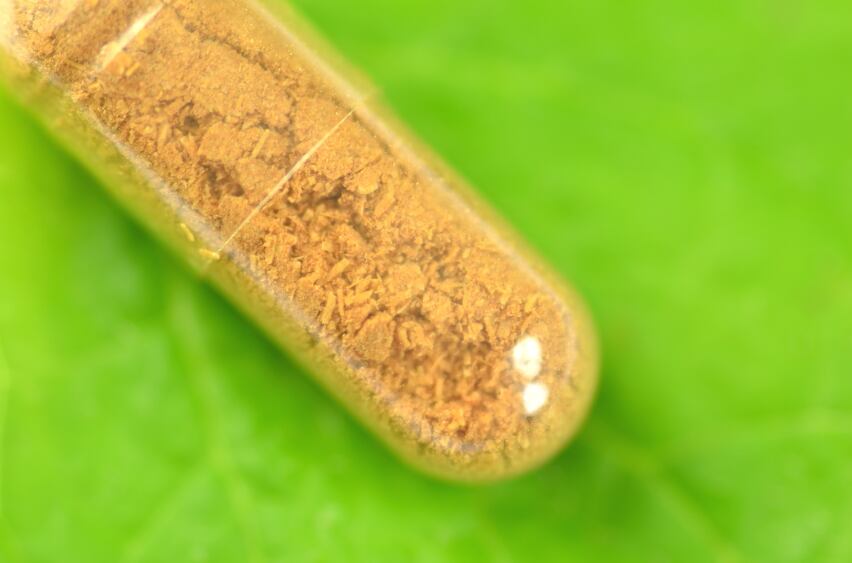The BBC 'Trust Me, I'm a Doctor' series, working with the University College London, said herbal extracts and products marketed as food supplements often did not meet their nutrient label claims.
It went on to say the food supplements sector was largely unregulated and that products regulated under the European Union Traditional Herbal Medicinal Products Directive (THMPD) were better quality.
The THMPD was created in 2004 and enacted in 2011 to provide a legislative framework for condition-specific botanical products in the European Union that in theory were neither foods or medicines but lay somewhere in between.
But sector players like Dr Robert Verkerk, executive and scientific director of the Alliance for Natural Health-International (ANH-I) which counts herbal product firms as members, said the problem was enforcement of existing laws, not the laws themselves.
Dr Verkerk, who has criticised the THMPD for being over-burdensome and discriminatory against food supplements due to cost, said the programme overstated the severity of the problem.
“It is illegal under food law to claim the presence of an ingredient and then not include it," he said. "This happens in a very small minority of products because of inadequate resources being allocated to policing and enforcement on the part of the UK Food Standards Agency (FSA) and trading standards, as well as authorities in other parts of the EU and further afield.”
“Sufficient regulation is in place to ensure manufacturers produce what is claimed on labels but there needs to be a more joined up approach on policing and enforcement before the few offending manufacturers raise their game to that of the majority who are already working hard to get it right.”
Quality control, austerity

Dick Middleton, PhD, chairman of the British Herbal Medicine Association (BHMA), which has supported the THMPD, said lax enforcement damaged the whole supplement sector.
“The THMPD is not appropriate for all herbal products. Some herbal products simply help with general health and wellness without being medicinal,” he told us.
“These products should be sold as botanicals in the BHMA view. The difficulty for botanical manufacturers who manufacture to high standards is that unfortunately, although they are theoretically controlled through the FSA nationally and Trading Standards Offices at local level, austerity measures mean that in reality, they are not controlled very well.”
“This means that the minority of sub-standard manufacturers identified by the BBC programme damage all botanical manufacturers including those that manufacture to high standards.”
“This may sound blindingly obvious but it clearly is not happening with a minority of botanical manufacturers. I sympathise greatly with the many botanical manufacturers who manufacture to high standards.”
The BBC and UCL have handed their results to the FSA's Food Crimes Unit. It found, for example, eight of 30 ginkgo biloba products with little or no ginkgo content.
Dr Verkerk added: “A small proportion of manufacturers don’t adhere to the necessary quality control standards. Many companies are reliant on contract manufacturers and some of these do not follow tight quality controls especially when it comes to testing the quality of incoming raw materials or finished goods. They are motivated to buy the cheapest raw materials to increase their margins, and in the case of some herbs the supply lines are of poor and variable quality.”
More to do

UK-based food law expert Owen Warnock, a partner at Eversheds in London, said “food supplements are of course regulated, by the Directive, and the BBC report is wrong in this respect.”
Warnock suggested “retailers selling these products would be prudent to test them too to protect their reputations.”
EU food law and botancials expert Luca Bucchini relayed from Rome that “weak enforcement of food supplement law should not be a reason to restrict availability of wellbeing products.”
“Weak enforcement, not food supplement law, is the cause of the same problems, in the UK, in the US and across the EU, in Italy, Germany, France.”
“Most EU stakeholders and regulators would welcome a specific regulation on the quality of botanicals - not a revision of the Food Supplements Directive (FSD).”
He added: “Customs should play a more signficant role; brands should be held responsibile; manufacturers and ingredient suppliers need to be inspected more carefully.”
“Politicians fail to realise that lack of enforcement - especially in this case - is not a boon to industry, but a serious blow to the many who make high quality products: Chinese consumers seem to buy EU products because they trust our controls system.”
Graham Keen, executive director of the UK Health Food Manufacturers' Association (HFMA) said: "We were pleased to see 'Trust me I’m a Doctor' provide much-needed clarity for consumers regarding the difference between THR products and food supplements."
